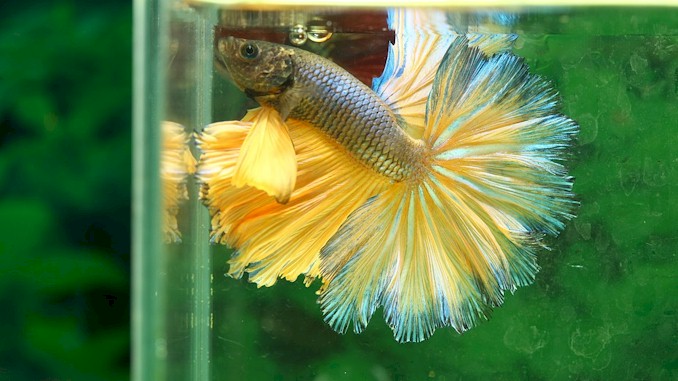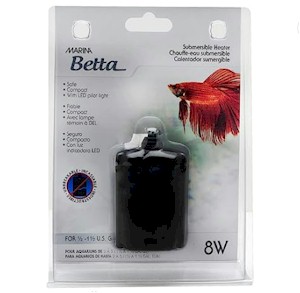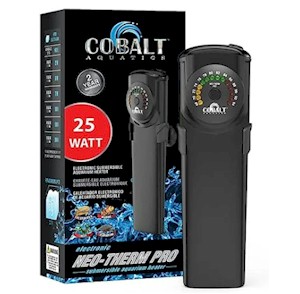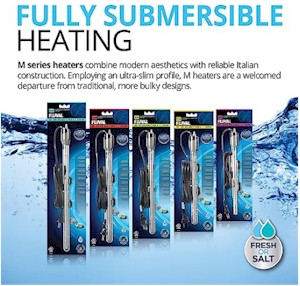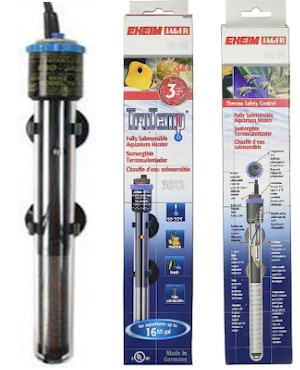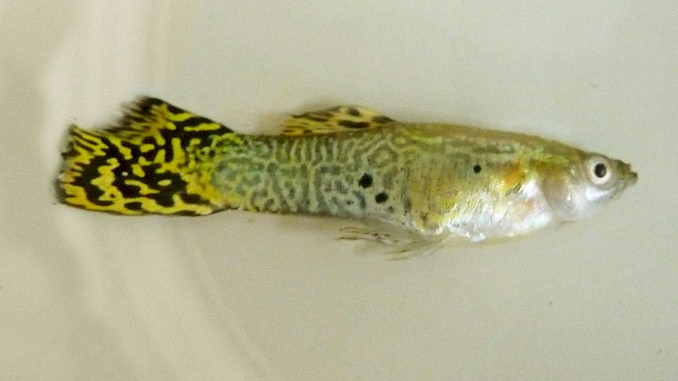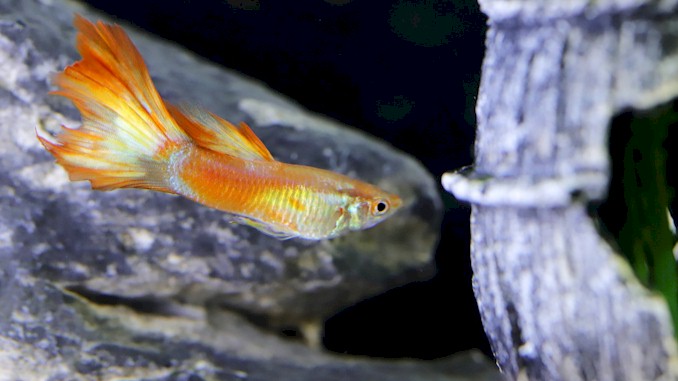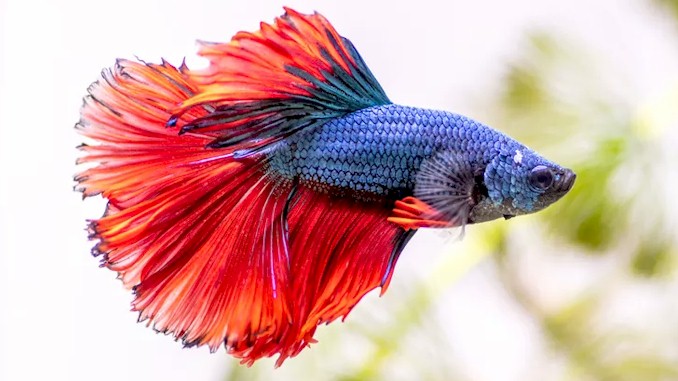Chilly Waters: Can Betta Fish Thrive in Cold Temperatures?
If you are a betta fish owner, you might be wondering if your beloved pet can live in cold water. After all, betta fish are tropical fish that originate from warm regions of Southeast Asia. Does that mean they need a heater in their tank? Or can they adapt to lower temperatures? I had these questions floating over in my brain when I began to search the appropriate aquarium for the bettas that were coming to my home. After nearly 10 years for raising my bettas, I have learned a lot about this topic, and I want to share them with all betta fish lovers who are planning to get their bettas for first time. This article is the result.
Betta fish can survive in a wide range of water temperatures, from 18°C to 30°C (64°F to 86°F), but they prefer warmer water around 25°C to 27°C (77°F to 81°F). Bettas are cold-blooded animals that rely on the external environment to regulate their body temperature. Cold water can cause stress, lethargy, and increased susceptibility to diseases in betta fish. Therefore, it is not recommended to keep betta fish in cold water for long periods of time.
In this article, I will share with you why water temperature is so important for betta fish, what happens when the water is too hot or too cold, and how to measure and adjust the water temperature in your betta fish tank. By following these tips, you will be able to provide your betta fish with the best care possible and enjoy their beauty and personality for a long time.
Why You Should Care About Your Betta Fish’s Water Temperature
If you are a betta fish owner, you might think that your pet can live in any water condition as long as it is clean and fresh. However, this is not true. Betta fish are tropical fish that originate from warm regions of Southeast Asia, where the water temperature is consistent and stable throughout the year. Therefore, they have evolved to thrive in a specific range of water temperature that suits their metabolism and immune system.
The ideal water temperature for betta fish is between 77°F and 81°F. This is the temperature that allows them to be active, healthy, and happy. If the water temperature falls below or rises above this range, your betta fish will suffer from stress, disease, and even death.
Why is this temperature so important for betta fish? Well, because betta fish are cold-blooded animals, which means that they cannot regulate their body temperature internally. They depend on the external environment to maintain their body temperature at a constant level. If the water temperature changes too much or too often, their body temperature will also change, affecting their metabolism and immune system.
What is the Ideal Water Temperature for Betta Fish?
As I have mentioned before, betta fish are tropical fish that need warm water to thrive. The ideal water temperature for betta fish is between 77°F and 81°F. This is the temperature that allows them to be active, healthy, and happy. Within this range, you can choose a specific temperature that suits your betta fish’s personality and preferences. Some betta fish may like it warmer, while others may like it cooler. However, the most recommended temperature is 78°F, as it is the middle point of the ideal range and the closest to their natural habitat.
Metabolism is the process by which the body converts food into energy and uses it for various functions. Immune system is the defense mechanism of the body against diseases and infections. Both of these systems are crucial for the survival and well-being of betta fish. If the water temperature is too high or too low, their metabolism and immune system will be disrupted, causing stress, disease, and even death.
Therefore, it is essential to keep the water temperature in your betta fish tank stable and within the ideal range. This will ensure that your betta fish can function normally and enjoy a long and happy life.
What does cold water temperature do to betta fish?
Cold water can cause stress and disease in betta fish. But how does cold water affect their body and behavior? Here are some of the effects of cold water temperature on betta fish that you should know.
- Slows down their metabolism. One of the effects of cold water temperature on betta fish is that it slows down their metabolism. Metabolism is the process by which the body converts food into energy and uses it for various functions. When the water temperature drops below 74°F, the cold water will cause their metabolism to slow down and make them feel tired and weak . This will affect their growth, development, and reproduction.
- Reduces their appetite. Another effect of cold water temperature on betta fish is that it reduces their appetite. Appetite is the desire or need to eat food. When the water temperature drops below 74°F, the cold water will affect their digestive system and make them feel full or nauseous . This will cause them to eat less or refuse to eat at all. This can lead to malnutrition and weight loss.
- Weakens their immune system. Another effect of cold water temperature on betta fish is that it weakens their immune system. Immune system is the defense mechanism of the body against diseases and infections. When the water temperature drops below 74°F, the cold water will lower their body temperature and reduce their blood circulation . This will make them more susceptible to diseases and infections, such as fin rot, fungal infections, bacterial infections, parasites, or ick.
- Changes their behavior. Another effect of cold water temperature on betta fish is that it changes their behavior. Behavior is the way that an animal acts or reacts to its environment or stimuli. When the water temperature drops below 74°F, the cold water will cause them to become less active, less responsive, and less interested in food or interaction . They may also become more aggressive or territorial due to stress or discomfort. They may also show signs of distress or pain, such as clamped fins, labored breathing, or pale coloration.
What are the Signs and Effects of Cold Water Stress in Betta Fish?
As you know now, cold water can cause stress and disease in betta fish. But how can you tell if your betta fish is suffering from cold water stress? And what are the effects of cold water stress on your betta fish’s health and behavior? Here are some signs and effects of cold water stress in betta fish that you should be aware of.
- Lethargy. One of the most obvious signs of cold water stress in betta fish is lethargy. Lethargy means that your betta fish will be less active, less responsive, and less interested in food or interaction. Your betta fish may stay at the bottom of the tank, hide behind plants or decorations, or float near the surface. This is because cold water slows down their metabolism and makes them feel tired and weak.
- Loss of appetite. Another sign of cold water stress in betta fish is loss of appetite. Loss of appetite means that your betta fish will eat less or refuse to eat at all. This is because cold water affects their digestive system and makes them feel full or nauseous. Your betta fish may also have difficulty swallowing or spitting out food. This can lead to malnutrition and weight loss.
- Weak immune system. Another effect of cold water stress in betta fish is a weak immune system. A weak immune system means that your betta fish will be more susceptible to diseases and infections. This is because cold water lowers their body temperature and reduces their blood circulation. Your betta fish may develop symptoms such as fin rot, fungal infections, bacterial infections, parasites, or ick.
- Clamped fins. Another sign of cold water stress in betta fish is clamped fins. Clamped fins means that your betta fish will fold their fins close to their body instead of spreading them out. This is because cold water causes them to contract their muscles and conserve heat. Your betta fish may also lose color or develop dark patches on their fins or body.
- Labored breathing. Another sign of cold water stress in betta fish is labored breathing. Labored breathing means that your betta fish will breathe faster, harder, or more shallowly than normal. This is because cold water reduces the oxygen levels in the water and makes it harder for them to breathe. Your betta fish may also gasp for air at the surface or show signs of gill inflammation or damage.
How to Treat and Prevent Cold Water Stress in Betta Fish?
If you notice that your betta fish is showing signs of cold water stress, you should act quickly to treat and prevent further damage. Cold water stress can lead to serious health problems and even death if left untreated. Here are some steps you can take to treat and prevent cold water stress in betta fish.
1. Raise the water temperature
The first and most urgent step is to raise the water temperature in your betta fish tank to the ideal range of 77°F and 81°F. You can do this by using a heater with an adjustable thermostat that allows you to set the desired temperature for your betta fish. You should also use a thermometer to monitor the water temperature and make sure that it is stable and consistent. You should raise the water temperature gradually, no more than 2°F per hour, to avoid shocking your betta fish.
2. Isolate your betta fish
The second step is to isolate your betta fish from other tank mates or potential stressors. You can do this by transferring your betta fish to a quarantine tank or a hospital tank that has the same water parameters as your main tank. This will allow your betta fish to recover from cold water stress without being disturbed or harassed by other fish or objects in the tank.
3. Treat any diseases or infections
The third step is to treat any diseases or infections that your betta fish may have developed due to cold water stress. Cold water stress can weaken your betta fish’s immune system and make them more prone to diseases and infections, such as fin rot, fungal infections, bacterial infections, parasites, or ick. You should inspect your betta fish for any signs of these conditions and use the appropriate medication or treatment to cure them. You should also perform regular water changes and maintain good water quality to prevent further outbreaks.
4. Provide a balanced diet
The fourth step is to provide a balanced diet for your betta fish. A balanced diet will help your betta fish regain their strength and appetite after cold water stress. You should feed your betta fish high-quality food that is suitable for their species and needs, such as pellets, flakes, frozen, or live food. You should also vary their diet and include some treats, such as bloodworms, brine shrimp, or daphnia. You should feed your betta fish once or twice a day and avoid overfeeding or underfeeding them.
4. Prevent future cold water stress
The fifth and final step is to prevent future cold water stress in your betta fish. You can do this by following these tips:
- Use a thermometer and a heater to monitor and maintain the water temperature in your betta fish tank at all times.
- Perform regular water changes and test the water parameters to ensure optimal water quality for your betta fish.
- Acclimate your betta fish properly when introducing them to a new tank or changing the water in their tank.
- Keep your betta fish tank in an area that has a stable temperature and that is not exposed to direct sunlight, drafts, or heat sources.
- Choose compatible tank mates and provide enough space and hiding places for your betta fish.
How to prevent betta fish temperature shock?
Betta fish temperature shock is a serious condition that can harm or kill your betta fish. It occurs when the water temperature in your betta fish tank changes too quickly or too much, causing stress and damage to your betta fish’s body and behavior. Fortunately, there are some ways to prevent betta fish temperature shock and keep your betta fish healthy and happy. Here are some tips on how to prevent betta fish temperature shock.
1. Gradually change the water temperature
One of the best ways to prevent betta fish temperature shock is to gradually change the water temperature in your betta fish tank. This means that you should avoid adding water that is too hot or too cold to your tank, as this can shock your betta fish. Instead, you should acclimate the new water to the tank’s temperature before adding it to your tank. You can do this by using a thermometer to measure the temperature of both waters and adjust it accordingly before mixing them. You should also change the water slowly, no more than 25% at a time, to avoid sudden changes in water parameters.
2. Use a heater and a thermometer
Another way to prevent betta fish temperature shock is to use a heater and a thermometer to monitor and maintain the water temperature in your betta fish tank. A heater is a device that heats up the water in your tank automatically, according to a preset temperature or a thermostat. A thermometer is a device that measures the water temperature in your tank and displays it for you to see. You should use both devices to ensure that the water temperature in your betta fish tank is stable and within the ideal range of 77°F and 81°F. You should also check the heater and the thermometer regularly for any malfunction or damage.
As I mentioned earlier, bettas require a heater. I personally recommend the Orlushy Submersible Aquarium Heater (link to Amazon). After testing countless devices, I genuinely believe that this is the one you should get. It keeps the temperature incredibly stable. The price is also reasonable.
3. Keep your betta fish tank in a stable environment
Another way to prevent betta fish temperature shock is to keep your betta fish tank in a stable environment that does not expose it to direct sunlight, drafts, or heat sources. These factors can cause fluctuations in the water temperature that can harm your betta fish. You should also avoid placing your betta fish tank near windows, doors, air conditioners, radiators, or fireplaces. You should also avoid moving your betta fish tank frequently or placing it in areas where there are sudden changes in temperature, such as near a fan or a vent.
4. Acclimate your betta fish properly
Another way to prevent betta fish temperature shock is to acclimate your betta fish properly when introducing them to a new tank or changing the water in their tank. Acclimation is the process of gradually adjusting your betta fish to new water conditions, such as temperature, pH, hardness, or salinity. Acclimation helps your betta fish adapt to their new environment without stress or shock. You can acclimate your betta fish by using one of these methods:
- Floating method: This method involves floating your betta fish in a bag or a container in their new tank for about 20-30 minutes. This allows the water temperature in the bag or container to match the water temperature in the tank. Then, you can slowly add some water from the tank to the bag or container every 10 minutes for another 20-30 minutes. This allows your betta fish to adjust to other water parameters besides temperature. Finally, you can release your betta fish into their new tank.
- Drip method: Setting up a siphon or air tube from the new tank to the bag or container containing your betta fish is required for this technique. This enables a gentle trickle of water from the new tank to reach your betta fish’s bag or container. This gives your betta fish an hour or more to gradually acclimate to all water conditions, including temperature. Your betta fish can then be released into their new aquarium at that point.
How cold is too cold for betta fish?
Betta fish are tropical fish that need warm water to thrive. They can survive in a wide range of water temperatures, from 64°F to 86°F (18°C to 30°C), but they prefer warmer water around 77°F to 81°F (25°C to 27°C). Cold water can cause stress, lethargy, and increased susceptibility to diseases in betta fish. Therefore, it is not recommended to keep betta fish in cold water for long periods of time.
But how cold is too cold for betta fish? According to experts, anything lower than 74°F (23°C) is too cold for betta fish. At this point, you will observe tangible symptoms of temperature shock, such as decreased appetite, clamped fins, discolouration of the skin, difficulty swimming, and labored breathing. These symptoms indicate that your betta fish is suffering from stress and discomfort and that their metabolism and immune system are disrupted.
Room temperature water is typically around 68°F (20°C), making it much too cold for your betta fish. While your betta may not perish immediately in cold water, prolonged periods in cold water shorten its life span and reduce its quality of life. Therefore, you should always monitor and maintain the water temperature in your betta fish tank within the ideal range of 77°F and 81°F (25°C and 27°C). This will ensure that your betta fish can function normally and enjoy a long and happy life.
Debunking Cold Water Betta Fish Myths
Betta fish are one of the most popular and beautiful freshwater fish kept as pets. However, they are also one of the most misunderstood and mistreated fish due to many myths and misconceptions that surround them. One of the most common myths about betta fish is that they can live in cold water or that they don’t need heaters or filters. Now, let’s debunk some of these myths and explain why they are false and harmful for your betta fish.
- Myth: Betta fish can live in cold water. Fact: Betta fish are tropical fish that need warm water to thrive. They can survive in a wide range of water temperatures, from 18°C to 30°C (64°F to 86°F), but they prefer warmer water around 25°C to 27°C (77°F to 81°F). Cold water can cause stress, lethargy, and increased susceptibility to diseases in betta fish. Therefore, it is not recommended to keep betta fish in cold water for long periods of time.
- Myth: Betta fish don’t need heaters or filters. Fact: Betta fish need heaters and filters to maintain a stable and healthy environment in their tanks. Heaters help to keep the water temperature within the ideal range of 77°F and 81°F (25°C and 27°C) and prevent temperature fluctuations that can harm your betta fish. Filters help to keep the water clean and oxygenated and provide a place for beneficial bacteria to grow. Both heaters and filters are essential for your betta fish’s well-being.
- Myth: Betta fish can live in small bowls or vases. Fact: Betta fish cannot live in small bowls or vases that do not have enough space, oxygen, or filtration for them. Betta fish need at least 5 gallons of water per fish to swim freely and comfortably. They also need a lid or cover to prevent them from jumping out of the tank. Small bowls or vases do not provide enough room or oxygen for your betta fish and can quickly become dirty and toxic for them. They also do not allow you to use heaters or filters that your betta fish needs.
- Myth: Betta fish can survive on plant roots or vase decorations. Fact: Betta fish cannot survive on plant roots or vase decorations that do not provide enough nutrition or variety for them. Betta fish are carnivorous fish that need a high-protein diet that consists of pellets, flakes, frozen, or live food. They also need some treats, such as bloodworms, brine shrimp, or daphnia, to supplement their diet. Plant roots or vase decorations do not provide enough protein or nutrients for your betta fish and can cause malnutrition and starvation for them.
- Myth: Betta fish are aggressive and cannot live with other fish. Fact: Betta fish are not aggressive by nature but rather territorial and defensive. They can live with other peaceful and compatible fish that do not have long fins or bright colors that can trigger their aggression. They also need enough space and hiding places to avoid conflicts with other tank mates. Some suitable tank mates for betta fish are corydoras catfish, neon tetras, harlequin rasboras, snails, and shrimp.
What Temperature Will Kill Bettas?
Betta fish are tropical fish that need a water temperature between 77°F and 81°F. Colder water can kill the betta, as the betta’s immune system will slow and make them susceptible to disease. Hotter water can also kill the betta, as it can make them uncomfortable, age quickly, and reduce the oxygen in the water. Betta fish can only survive in temperatures between 72°F and 86°F for a short time. The temperature should be maintained with a heater.
Top Betta Fish Tank Heaters
As we have discussed, betta fish need warm water to thrive and avoid stress and disease. Therefore, having a reliable and safe heater for your betta fish tank is essential to maintain a stable and comfortable water temperature for your betta fish. However, not all heaters are suitable or effective for betta fish tanks, especially if they are small or have specific requirements. In the following section, I will review some of the top cold water betta fish heaters that you can choose from depending on the size and type of your betta fish tank.
Best for 1-Gallon Tank
Marina Betta Submersible Aquarium Heater. This heater is designed to heat tanks between 0.5-1.5 gallons and is preset to approximately 78°F to keep your betta’s tank at the perfect temperature. It is encased in durable polymer to prevent breaking and uses suction cups to attach to the tank.
It is fully submersible and automatically restarts after a power outage. It also has an indicator light that shows when it is on or off.
Best for 5-Gallon Tank
Cobalt Aquatics Flat Neo-Therm Heater. This heater is designed to heat tanks up to 6 gallons and has an adjustable thermostat that allows you to set the desired temperature for your betta fish between 66°F and 96°F.
It is made of shatterproof plastic and has a sleek and flat design that blends in with the tank. It also has a built-in thermal protection circuit that prevents overheating or malfunctioning. It comes with suction cup attachments for easy installation.
Best for 10-Gallon Tank
Fluval Submersible Glass Aquarium Heater. This heater is designed to heat tanks up to 15 gallons and has an adjustable thermostat that allows you to set the desired temperature for your betta fish between 68°F and 86°F.
It is made of shock-resistant borosilicate glass that reduces the risk of cracking or breaking. It also has a unique reflective casing that helps camouflage the heater within the tank. It comes with suction cups for easy installation.
Best for Tanks Over 10 Gallons
Eheim Jager Thermocontrol Aquarium Heater. This heater is designed to heat tanks up to 264 gallons and has an adjustable thermostat that allows you to set the desired temperature for your betta fish between 65°F and 93°F. It is made of shatterproof glass and has a calibration knob that ensures accuracy within 0.9°F.
It also has a dry run shut-off mode that prevents damage if the water level drops too low. It comes with a mounting bracket and suction cups for easy installation.
When it comes to choosing the appropriate wattage for a Eheim Jager Thermocontrol Aquarium heater that is suitable for your aquarium, it can be quite a difficult job since there is a list of them without the information of what tank size it is suitable on Amazon. However, I have come across a helpful chart on the company’s website that has made this process easier for me. I understand that others may also be facing this same predicament, so I have decided to share this chart with you. It provides valuable information on the recommended wattage based on the size of your tank. With this chart, you can make an informed decision and select a heater that will provide optimal heating for your aquatic pets.


Conclusion
You risk losing your betta within a few days if the water in your aquarium is below 72°F degrees. With a heater, you may gradually increase the temperature until it reaches the ideal setting (77°F to 81°F degrees). Your betta should live if it is healthy.
However I strongly advise that you buy a heater if you don’t already have one or if you have one that isn’t functioning properly. Your betta fish may die in a chilly tank.
Maintaining the ideal water temperature for your betta fish is crucial to their well-being. It promotes healthy metabolic function and ensures they have the necessary levels of oxygen to thrive. Investing in a reliable heater is a small yet significant step in ensuring your aquatic pets live a healthy life. The benefits of a good heater cannot be overstated, as it creates a stable and consistent environment for your fish, reducing stress and promoting overall health. With the right care and attention, you can ensure your betta fish have a long and fulfilling life in their aquatic home.

